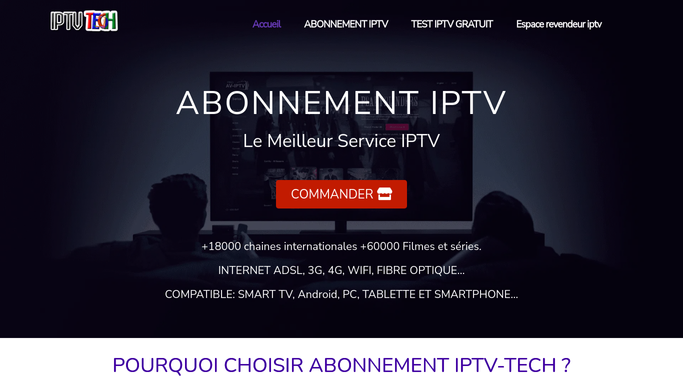The landscape of media consumption has transformed dramatically over the last few decades, shifting from traditional broadcast methods to more versatile and user-friendly options. One of the most significant advancements in this realm is the emergence of Internet Protocol Television (iptv abonnement). This technology is reshaping how viewers access and enjoy their favorite content, offering an array of benefits that cater to the demands of modern audiences.
What is IPTV?
IPTV stands for Internet Protocol Television, a digital television broadcasting protocol that delivers television content over the internet rather than through traditional satellite or cable formats. Unlike conventional TV services that rely on radio frequency signals, IPTV uses internet protocols to stream video content directly to viewers’ devices, including smart TVs, computers, tablets, and smartphones.
Key Features of IPTV Services
- On-Demand Content: One of the standout features of IPTV is its ability to provide on-demand content. Viewers can choose what they want to watch and when, eliminating the constraints of fixed broadcast schedules. This flexibility allows users to binge-watch their favorite shows or catch up on missed episodes at their convenience.
- Interactive Services: IPTV services often include interactive features that enhance the viewing experience. Users can access interactive program guides, pause and rewind live television, and even participate in voting or polling during live events. This level of interactivity is not typically available with traditional television services.
- Multi-Device Compatibility: IPTV is designed to be compatible with a wide range of devices, enabling users to watch content on their preferred screens. Whether at home on a smart TV or on the go with a mobile device, IPTV ensures that viewers have access to their favorite shows and movies wherever they are.
- Personalized Viewing Experience: Many IPTV services offer personalized recommendations based on users’ viewing habits. This feature helps viewers discover new content that aligns with their interests, making it easier to find shows and movies they will enjoy.
- Cost-Effective Solutions: IPTV services often come at a lower cost compared to traditional cable or satellite subscriptions. With various packages available, consumers can choose a plan that fits their budget and needs, often with the option to pay only for the channels they watch.
Types of IPTV Services
- Live IPTV: This service allows users to watch live television broadcasts, similar to traditional cable services. It includes real-time streaming of channels, enabling viewers to watch their favorite shows as they air.
- Video on Demand (VOD): VOD services provide a vast library of movies, TV shows, and other content that users can access anytime. This feature is popular for binge-watchers and those who prefer watching at their own pace.
- Time-Shifted TV: This feature allows viewers to watch previously aired content at their convenience. Users can pause, rewind, or fast-forward through shows, providing an added layer of flexibility.
- Catch-Up TV: Catch-up TV services enable viewers to watch shows that aired recently, typically within a specified period. This is particularly useful for those who missed a live broadcast but still want to stay updated.
Challenges and Considerations
While IPTV services offer numerous advantages, there are challenges and considerations for potential users:
- Internet Dependence: IPTV requires a stable and high-speed internet connection. Users in areas with poor connectivity may experience buffering and interruptions, impacting their viewing experience.
- Content Licensing: IPTV providers must secure licensing agreements for the content they offer. Some services may not have access to certain channels or shows, limiting the available options for viewers.
- Legal Issues: The IPTV market includes both legitimate providers and unauthorized services. Users must be cautious when selecting a provider to avoid legal issues and potential security risks associated with unlicensed content.
The Future of IPTV
As technology continues to evolve, the future of IPTV looks promising. With advancements in streaming quality, user interfaces, and personalized content delivery, IPTV services are likely to become even more integral to how we consume media. The rise of 5G technology may further enhance streaming capabilities, allowing for seamless viewing experiences and the proliferation of innovative features.
Conclusion
IPTV services are revolutionizing the way we watch television by offering flexibility, interactivity, and a wealth of content options. As viewers increasingly seek control over their media consumption, IPTV stands out as a forward-thinking solution that meets these demands. By understanding the various aspects of IPTV, consumers can make informed choices that align with their viewing preferences and lifestyle.

